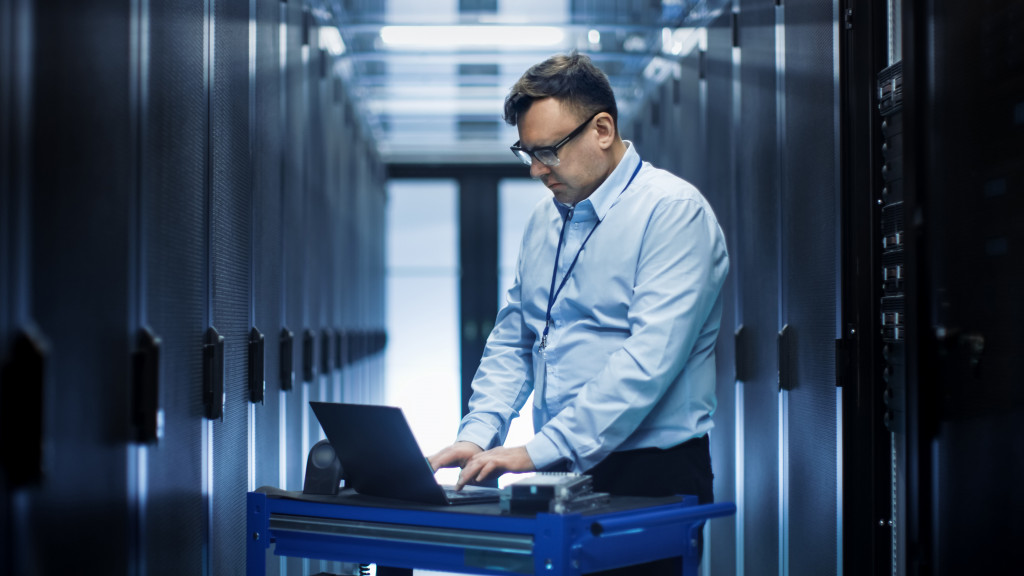- Data centers hold servers and other computer equipment for data processing.
- Businesses need data centers that are secure, available, and scalable.
- Components of data centers include servers, cooling systems, power supplies, and physical security protocols.
- Essential considerations when constructing a data center include environment safety, location, security and access control, and scalability.
Data centers are the backbone of modern digital infrastructure. A well-constructed data center ensures your business’ critical data will be available, secure, and scalable. Whether you are constructing your first data center or upgrading an existing one, there are crucial factors that you need to consider before taking any steps.
This blog post will explore some key considerations when constructing a data center, providing a detailed understanding of important factors you should consider.
What is a data center?
A data center is a facility that holds many servers and other computer equipment. These units are designed to perform specific functions—a server, for instance, processes data requests and manages the flow of information in a network. A data center combines top-class information technology (IT) equipment and backup power storage, security protocols, and cooling systems to ensure accurate and efficient data processing.
What are the components of a data center?

Data centers are built to keep data safe and secure, so they contain cutting-edge components crucial to their formation. These include:
- Servers: Devices that store and manipulate digital data.
- Cooling systems: Multiple cooling systems are used in data centers to keep the equipment within temperature ranges that don’t damage the devices.
- Power supply: Backup power is essential for data centers, which can change from primary authority to an alternate source that includes generators.
- Physical security: Data centers have a physical line of defense, including locks, gates, and security cameras.
- Network hardware and equipment: Devices such as routers, switches, and firewalls are essential for efficiently handling incoming and outgoing network traffic.
- Monitoring and Maintenance: 24/7 managed services, ensuring all the equipment runs smoothly.
Things to Consider When Constructing a Data Center
A data center differs from a standard office setup; the construction requires expert knowledge and technical proficiency. Here are some key points to consider when constructing your ideal data center:
Environment Safety
It is critically important for data centers to consider environmental safety when constructing the facility. This means ensuring that the cooling systems, generators, and other infrastructure elements are all adequately regulated to minimize their carbon footprint.
Moreover, investing in flooring solutions that will prevent static electricity from damaging computer hardware is also a must.
For optimum fire protection and environmental control, conductive epoxy flooring solutions can help ensure your data center is fuelled with the best safety measures to mitigate any hazardous risks. Fire control is a critical function of conductive epoxy flooring as it limits the spread of electrical fires by providing an electrically conductive barrier between components, limiting potential damage to equipment and network infrastructure should any fires occur.
Location of the Data Center
The location of your data center is one of the most critical factors to consider when constructing a new data center. The site must be close to where your business is and the users who use your services. This ensures you have reduced latency and network performance issues critical to delivering high-quality services.
Geography is also critical; areas prone to natural disasters such as earthquakes, hurricanes, or floods are not ideal locations for data centers. Accessibility, availability of reliable power, access to water, and fiber-broadband connections are other important considerations when choosing a place for your data center.
Security and Access Control

Data is sensitive and confidential, so security is critical when constructing a data center. Your data center must have robust security features, including 24-hour surveillance, secure fencing, and access control systems.
Access control systems should be tailored to your specific needs, such as creating different levels of access and permissions for other users. Your data center must also have redundant power and cooling infrastructure to ensure continuous uptime, even during emergencies.
Scalability and Capacity
Scalability means the data center has room for growth and can accommodate the increasing service demand. One way to ensure scalability is by using modular designs or prefabricated data centers. This approach means you can quickly and efficiently expand your data center capacity as required.
Scalability also requires reliable power and cooling infrastructure to support additional equipment and systems. Consulting with an experienced data center consultant can help you determine how much capacity you need and how much you need to keep available for projected growth.
The Bottom Line
Constructing a data center is not easy, but it’s critical to ensure that your business’ data is secure, available, and scalable. These are the key considerations you should consider when constructing a data center: environment safety, location, security and access control, and scalability. Considering these factors, you will have the proper foundation for building a thriving data center.




